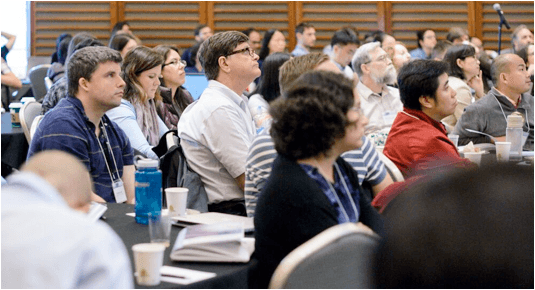The huge upswing in sequencing activity over the past few years was one of the main topics discussed at the 10th annual PQG (Program in Quantitative Genomics) conference held earlier this month at the Joseph B. Martin Conference Center. The event, covered in a recent feature on the HSPH News site, drew 150 attendees, including statistical geneticists, computational biologists, genetic epidemiologists, population geneticists, and clinical scientists.
Focused on whole genome sequencing, the conference highlighted opportunities and challenges in managing and analyzing vast amounts of genetic data, and in using that data to advance public health. Given the explosion in demand for whole genome sequencing, researchers are currently focusing on ways to sequence genomes more efficiently, best practices for storing and sharing data, and ways to reduce sequencing costs.
Among various topics discussed at the event, several speakers addressed how genetic data can be used to find single nucleotide polymorphisms or single genes linked with various diseases. Others focused on how DNA from ancient humans can help scientists better understand the evolution and biology of modern humans.
While information generated from sequencing can be used to identify those at risk for developing certain diseases, Isaac Kohane of the Harvard Medical School cautioned that overreliance on genetic information while diagnosing may falsely suggest the presence of a disease, and suggested that more emphasis should be placed on defining “classes” of symptoms rather than strictly labeling diseases – even in the presence of genetic indicators.
“It’s a really exciting time in the field of human genetics,” noted Xihong Lin, coordinating director of the PQG and principal investigator of the National Science Foundation conference grant funding this year’s conference. “Such massive whole genome sequencing data presents an unprecedented opportunity for genetic discovery in human diseases, with the most comprehensive capture of the human genome.”




